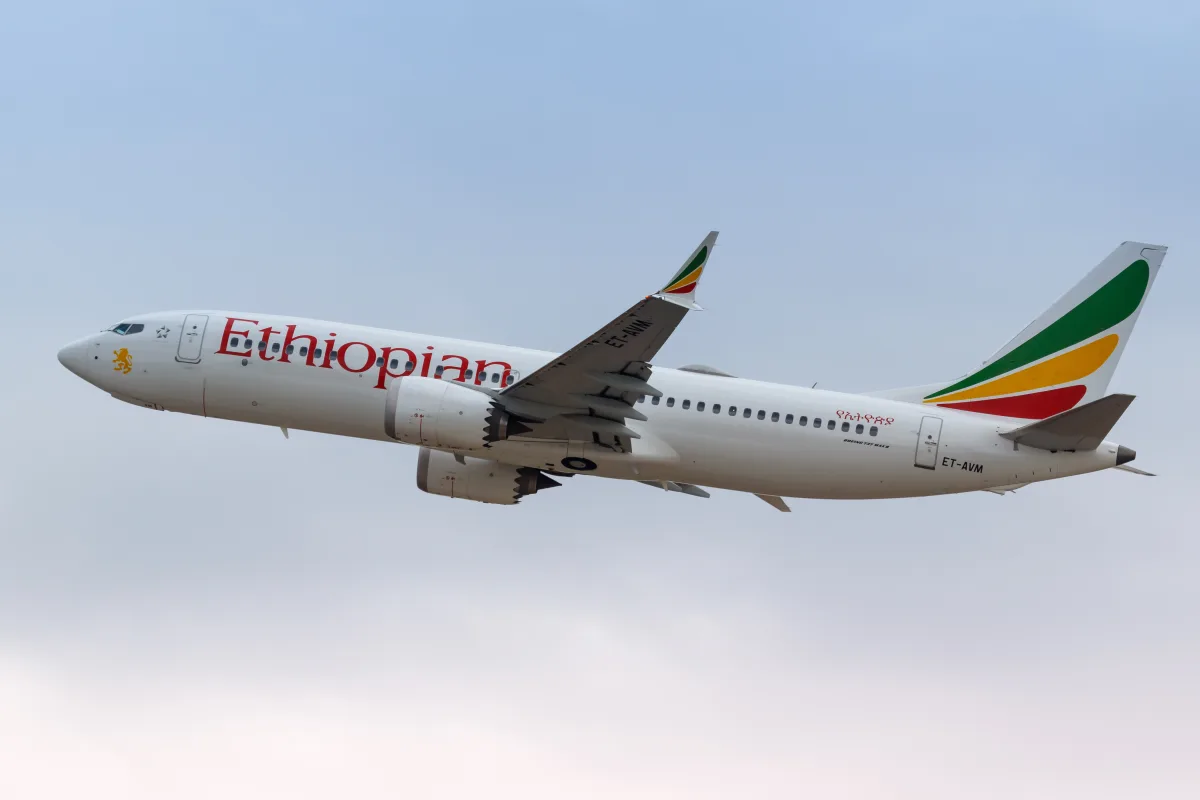US aviation manufacturing giant Boeing is again facing questions over the safety of its aircraft after one of its 737 MAX 9 planes operated by Alaska Airlines lost part of its fuselage mid-flight during a journey from Portland to Ontario last week, in a development that could have implications for Ethiopian Airlines, one of Boeing’s most significant partners in Africa.
In November last year, Ethiopian Airlines announced that it had agreed to order eleven 787 Dreamliner and twenty 737 MAX 8 planes from Boeing, with the option of purchasing more of both models at a later date, in what is the largest-ever purchase of Boeing planes from an airline in Africa. Ethiopian Airlines already operates the largest Dreamliner fleet in Africa.
At the time, Ethiopian Airlines was keen to emphasise the closeness of its relationship with Boeing, which had come under scrutiny following the Flight 302 disaster in March 2019, Ethiopia’s deadliest aircraft accident. This was a crash involving a Boeing 737 MAX 8 that malfunctioned shortly after take-off in Addis Ababa, killing all 157 people onboard, and leading to a two-year worldwide grounding of the model.
When approached by African Business, Boeing pointed out that Ethiopian Airlines does not use the 737 MAX 9 model but referred to commitments made by its CEO Dave Calhoun. He said that Boeing would take “all actions that are required to ensure every next airplane that moves into the sky is in fact safe and that this event can never happen again”. Ethiopian Airlines could not be reached for comment.
When the deal was signed last year, Ethiopian Airlines CEO Mesfin Tesaw said that “we have solidified our decades-old exemplary business partnership with Boeing.” He also added that “we believe we have checked and confirmed that the design defect of that aircraft has been fully corrected by Boeing.”
In another sign of how strong ties between the two companies have become, in December Boeing appointed former Ethiopian Airlines vice-president Henok Teferra Shawl as the new managing director for Boeing Africa, as part of its plans to use Ethiopia as a base for wider expansion into the African market.
‘Should be an isolated case’
Chidozie Uzoezie, aviation analyst and founder of the African Aviation Group, tells African Business that Boeing’s recent difficulties should be “an isolated case with no ‘spill-over’ effect on Ethiopian Airlines,” given that it does not use the 737 MAX 9 model that malfunctioned last week. Nevertheless, he says that Boeing needs to “put its house in order”.
“I absolutely have no safety concerns regarding the current Boeing models operated by Ethiopian Airlines,” Uzoezie says.
“For long haul, Ethiopian Airlines operates the Boeing 777 and the 787, which are two of the world’s most successful widebody aircraft. For short haul, the airline operates the Boeing 737 NG/MAX, which have impressive safety records.”
“Being the most scrutinised aircraft model in the world [following the Flight 302 disaster], the Boeing 737 MAX 8 is now one of the safest aircraft models in the sky today,” he adds.
For these reasons, Uzoezie believes that Ethiopian Airlines will continue to have confidence in Boeing despite the questions being raised over the safety of another model.
“Ethiopian Airlines is a longstanding Boeing customer. Both have enjoyed a beneficial business relationship for many decades,” he says. “I don’t think that the recent MAX 9 issue will negatively impact the business relationship.”
“However, I’d like to think that the safety of passengers and crew is Ethiopian Airlines’ top priority – so if Boeing fails to put its house in order with respect to safe and reliable products, Ethiopian Airlines may be forced to look elsewhere in terms of fleet.”
Want to continue reading? Subscribe today.
You've read all your free articles for this month! Subscribe now to enjoy full access to our content.
Digital Monthly
£8.00 / month
Receive full unlimited access to our articles, opinions, podcasts and more.
Digital Yearly
£70.00 / year
Our best value offer - save £26 and gain access to all of our digital content for an entire year!
 Sign in with Google
Sign in with Google 



